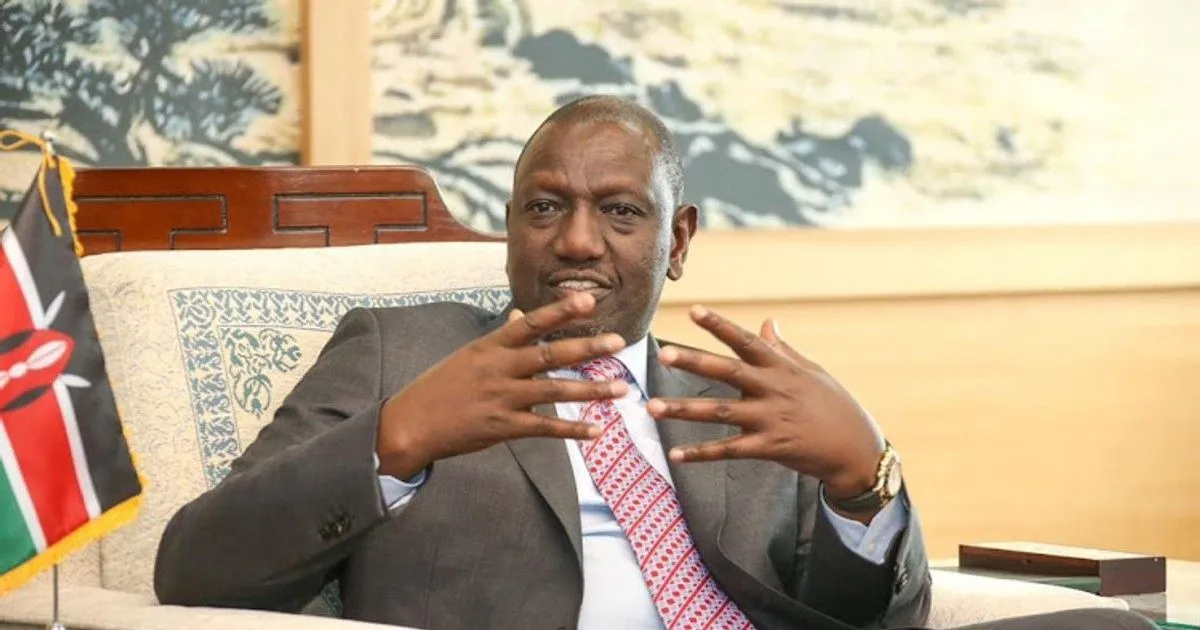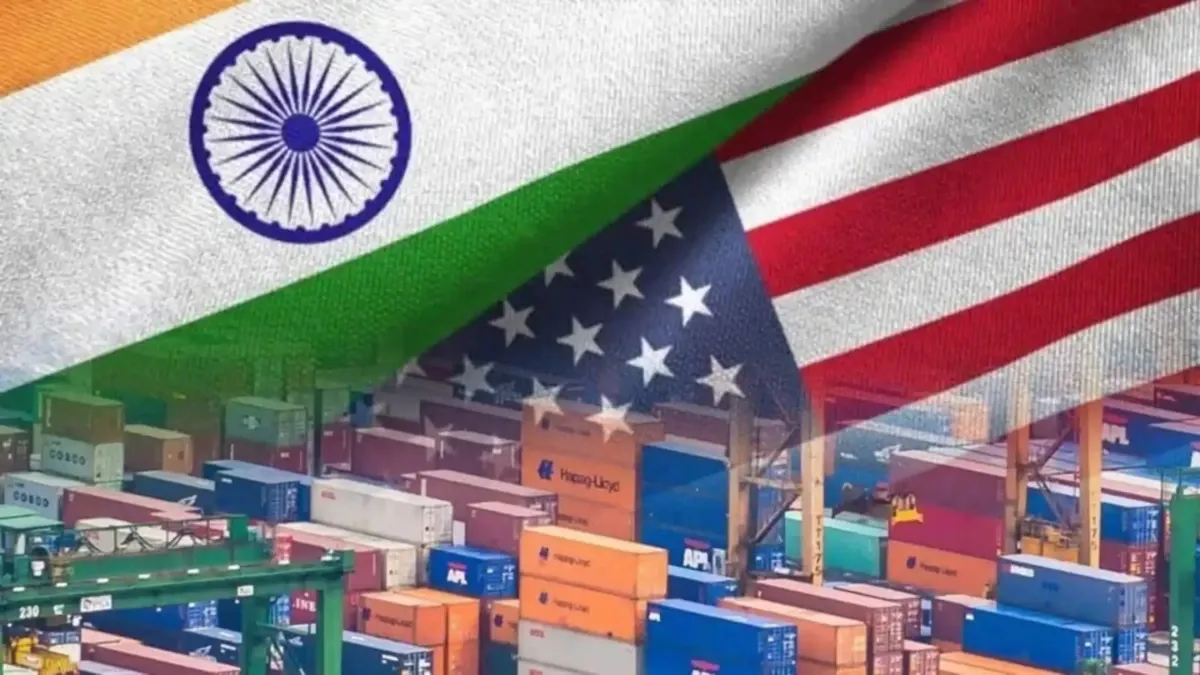In a forceful move intended to safeguard farmers’ incomes and ensure a level playing field in the agricultural sector, Agriculture and Livestock Development Cabinet Secretary Mutahi Kagwe has issued a stern ultimatum to miraa traders and exporters. Speaking at a high-profile Farmers’ Day event in Meru, Kagwe warned that those failing to comply with the ministry’s minimum price directive for miraa—the widely traded stimulant leaf—would have their licenses revoked within two weeks. The non-compliant traders would then be required to reapply for their licenses, but this time with a mandatory declaration of the prices they intend to pay farmers.
This decisive intervention marks a significant shift in government policy aimed at curbing underpricing practices that have long undermined the economic welfare of miraa farmers. The move comes amid growing concerns that high air transport costs and other logistical challenges are being used by traders to justify lower payments to farmers. In a clarion call for accountability, CS Kagwe dismissed such arguments and hinted at robust measures designed to address these issues directly.
A Rigorous Stance on Pricing Compliance
During his address at the Farmers’ Day event in Meru, CS Mutahi Kagwe made it clear that adherence to the newly instituted minimum price directive was not optional. “We are here to ensure that the backbone of our agricultural sector, our farmers, are not short-changed,” Kagwe asserted. “Any trader or exporter who does not comply with our directive will face severe consequences, including license revocation, which means they must reapply with full disclosure of the pricing they offer.”
This firm stance comes at a critical time for Kenya’s miraa market. For decades, miraa has been a major cash crop for farmers in the northern regions of Kenya, sustaining livelihoods but also exposing them to volatile market practices and middlemen price manipulations. By enforcing the minimum price directive, the government aims to stabilize the earnings of farmers and promote transparency in trade. As part of this enforcement, the authorities have set a two-week deadline within which traders must align their operations with the stipulated standards.
Addressing Transport Cost Challenges and the Somalia Border Issue
One of the most contentious issues raised by traders has been the high cost of air transport, which they argue significantly increases their operational expenses and squeezes profit margins. However, Kagwe dismissed these concerns as an insufficient excuse for underpricing. “High air transport costs are a challenge we acknowledge, but they do not justify cutting corners on fair pricing for our farmers,” he stated emphatically.
In a further effort to mitigate these logistical challenges, Kagwe hinted at discussions with relevant ministries on a bold plan—to reopen the Somalia border for road transportation of miraa. Historically, the border closure due to security concerns has limited the options for trading and export logistics, forcing traders to rely on costlier air freight methods. Opening the border could potentially lower transport costs and provide traders with a more affordable and efficient means of moving goods. This strategic initiative, if implemented, would not only contribute to stabilizing miraa prices but could also enhance regional integration and foster deeper economic ties with neighboring countries.
The Ban on Prohibited Agricultural Chemicals
In a related development that underscores the government’s commitment to a safer and more sustainable agricultural sector, CS Kagwe announced that beginning next week, the government will enforce a ban on all agricultural chemicals that have already been prohibited in their countries of origin. The Pest Control Products Board is in the final stages of compiling the list of chemicals to be banned, which is expected to include a range of substances linked to environmental degradation and health hazards.
This move is being hailed as an important step toward protecting both farmers and consumers from the adverse effects of hazardous chemicals. By aligning local regulations with international standards, Kenya is sending a strong message about its commitment to sustainable and responsible agricultural practices. Such measures are expected to reduce the risk of chemical residues entering the food chain and improve the overall quality of agricultural products.
Policy Reforms and the Call for Legislative Focus
Beyond the immediate market interventions, CS Kagwe also used the opportunity to urge the Kenyan Parliament to refrain from enacting additional legislation that creates more administrative boards or authorities within the agricultural sector. “We need to streamline our regulatory framework and focus on policies that directly benefit our farmers,” Kagwe advised. He argued that an overabundance of regulatory bodies often leads to bureaucratic bottlenecks and diverts attention from the core objectives of agricultural development.
Kagwe’s remarks reflect broader concerns over the efficiency of government structures that manage agriculture and rural development. The call for legislative restraint is aimed at ensuring that future policies prioritize investment in direct support for farmers—such as improved market access, better infrastructure, and enhanced research and development—rather than further complicating the administrative landscape.
Macadamia Exports and the Preservation of Economic Interests
In another significant announcement, CS Kagwe directed the Agriculture and Food Authority (AFA) to issue a circular guiding farmers on the recommended seedlings for macadamia cultivation. While this may seem like a separate issue, it is part of a broader strategy to secure Kenya’s agricultural competitiveness on a global scale. Kagwe reiterated that the ban on raw macadamia exports would remain in place, a measure designed to protect Kenya’s economic interests by encouraging value addition locally before international sale.
The policy on macadamia exports mirrors similar protective measures that have been implemented for other cash crops. By retaining raw produce within the country for further processing, the government aims to stimulate local industries, generate employment, and capture more value from export activities—a classic example of moving up the value chain.
The Broader Impact on Miraa Farmers and the Agricultural Landscape
The ultimatum issued by CS Kagwe is set against the backdrop of a long-standing struggle for fair pricing in the miraa trade. For many smallholder farmers in Kenya, miraa is a lifeline—a crop that has sustained communities for generations. However, discrepancies in pricing have often left farmers vulnerable to exploitation by traders and middlemen, who sometimes lower the prices paid to producers under the guise of high transport costs or market volatility.
By enforcing a minimum price directive, the government is not only looking to correct these imbalances but also to promote a more equitable distribution of income along the supply chain. The hope is that with better-defined pricing structures, farmers will receive fair compensation for their hard work, thereby improving their living standards and bolstering rural economies.
The planned interventions—including the potential reopening of the Somalia border for road transport—are expected to have a ripple effect throughout the agricultural sector. Lower transportation costs could help reduce the operational expenses for traders, which in turn may lessen the pressure to underprice miraa. This could create a more sustainable market environment, benefiting everyone from producers to exporters.
Strengthening Institutional Frameworks and Enforcement Mechanisms
An essential component of the government’s strategy is the development of robust institutional frameworks to enforce these new policies. The Ministry of Agriculture and Livestock Development is reportedly working closely with regulatory bodies to monitor compliance and ensure that all traders adhere to the minimum price directive. License revocation, as outlined in Kagwe’s ultimatum, is a stern reminder that the government is willing to take decisive action to protect the interests of farmers.
The use of technological solutions to track and verify pricing compliance is also being explored. For instance, digital monitoring systems could be deployed at key trading hubs to record transactions and provide real-time data on pricing trends. Such measures would not only enhance transparency but also provide valuable insights that could inform future policy adjustments.
Moreover, the government is considering the establishment of an independent oversight committee—comprising representatives from farmer groups, industry experts, and civil society—to ensure that the implementation of these policies remains fair and effective. By engaging a broad range of stakeholders, the authorities hope to build trust in the regulatory process and ensure that enforcement is carried out in a manner that is both equitable and transparent.
Reactions from Stakeholders
The government’s decisive actions have elicited strong responses from various stakeholders in the agricultural sector. Farmers’ unions and cooperatives have welcomed the measures, citing them as a long-overdue intervention that will provide much-needed relief to those who have been disadvantaged by unfair trading practices. Many in the farming community view the move as a necessary step toward reclaiming control over the miraa value chain and ensuring that their contributions are properly recognized and rewarded.
On the other hand, some traders and exporters have expressed concerns about the potential impact of these regulations on market dynamics. They argue that the higher minimum prices may increase operational costs and potentially lead to reduced competitiveness in international markets. However, industry analysts maintain that while there might be short-term adjustments, the long-term benefits of a more equitable pricing framework are likely to outweigh any transitional disruptions. Greater stability and transparency in pricing are expected to foster a healthier business environment, where both traders and farmers can thrive.
Furthermore, experts note that similar pricing interventions in other agricultural sectors have yielded positive outcomes. In regions where government-enforced minimum pricing was implemented, there have been significant improvements in income distribution along the value chain. These case studies provide a hopeful outlook for the miraa sector, suggesting that with proper enforcement and stakeholder cooperation, fair pricing can lead to enhanced productivity and sustainability.
The Future Outlook for Kenya’s Agricultural Trade
The measures announced by CS Kagwe reflect a broader trend in Kenya’s agricultural policy—one that prioritizes the welfare of farmers and seeks to ensure that economic growth is both inclusive and sustainable. By placing a strong emphasis on fair pricing, enhanced enforcement, and strategic logistical improvements, the government is laying the groundwork for a more resilient agricultural sector.
One of the long-term goals is to transform Kenya’s agricultural trade into a model of efficiency and fairness that can serve as a benchmark for other countries in the region. The integration of modern technology in monitoring trade practices, coupled with proactive policy reforms, is expected to boost confidence among both local and international investors. This, in turn, could lead to increased investments in rural areas, improved infrastructure, and ultimately, a more robust agricultural economy.
Moreover, initiatives such as the planned ban on hazardous agricultural chemicals and the continued protection of value addition policies for crops like macadamia underscore the government’s commitment to sustainable development. These policies are designed to ensure that Kenya’s agricultural sector not only meets current market demands but also builds a foundation for long-term growth that is environmentally responsible and socially equitable.
Conclusion: A Turning Point for Fair Trade and Sustainable Agriculture
As Kenya enters a new phase of agricultural reform, the ultimatum issued by CS Mutahi Kagwe represents a critical turning point. By holding miraa traders to strict pricing compliance standards, the government is taking bold steps to rectify longstanding imbalances in the market. The initiatives announced today—including the potential reopening of the Somalia border for cost-effective transportation, stringent measures on prohibited chemicals, and streamlined licensing processes—are all aimed at fostering a more equitable and sustainable agricultural landscape.
For the miraa farmers, this could mark the beginning of a more secure economic future—one in which their labor is valued and fairly compensated. For the broader agricultural sector, it offers the promise of innovation, efficiency, and enhanced competitiveness on both regional and global stages. With proactive policy measures and a commitment to inclusive growth, Kenya is poised to lead by example, demonstrating that with determination and collaboration, even deeply entrenched challenges can be overcome.
Ultimately, the messages from CS Kagwe resonate deeply: fairness, transparency, and accountability are non-negotiable. In an era where market uncertainties abound, these principles will be the bedrock upon which a stronger, more resilient agricultural economy is built. As the implementation of these policies unfolds in the coming weeks, all eyes will be on the miraa market—a bellwether for the success of Kenya’s ambitious reform agenda.
In summary, while the current landscape may be fraught with challenges, the decisive actions taken today pave the way for a brighter, more equitable future for Kenya’s agricultural trade. The hope is that, through rigorous enforcement and innovative solutions, the nation can safeguard the interests of its farmers and ensure that every link in the supply chain benefits from the fruits of hard work and responsible governance.
With strong leadership and a clear vision, Kenya’s path toward fair trade and sustainable agriculture is set in motion—a journey that holds promise not only for miraa traders and farmers but for the entire agricultural community, ensuring that the nation’s rich heritage in agriculture is preserved and enhanced for generations to come.
Ready to take your career to the next level? Join our dynamic courses: ACCA, HESI A2, ATI TEAS 7 , HESI EXIT , NCLEX – RN and NCLEX – PN, Financial Literacy!🌟 Dive into a world of opportunities and empower yourself for success. Explore more at Serrari Ed and start your exciting journey today! ✨
photo source: Google
By: Montel Kamau
Serrari Financial Analyst
14th April, 2025
Article, Financial and News Disclaimer
The Value of a Financial Advisor
While this article offers valuable insights, it is essential to recognize that personal finance can be highly complex and unique to each individual. A financial advisor provides professional expertise and personalized guidance to help you make well-informed decisions tailored to your specific circumstances and goals.
Beyond offering knowledge, a financial advisor serves as a trusted partner to help you stay disciplined, avoid common pitfalls, and remain focused on your long-term objectives. Their perspective and experience can complement your own efforts, enhancing your financial well-being and ensuring a more confident approach to managing your finances.
Disclaimer: This article is for informational purposes only and does not constitute financial advice. Readers are encouraged to consult a licensed financial advisor to obtain guidance specific to their financial situation.
Article and News Disclaimer
The information provided on www.serrarigroup.com is for general informational purposes only. While we strive to keep the information up to date and accurate, we make no representations or warranties of any kind, express or implied, about the completeness, accuracy, reliability, suitability, or availability with respect to the website or the information, products, services, or related graphics contained on the website for any purpose. Any reliance you place on such information is therefore strictly at your own risk.
www.serrarigroup.com is not responsible for any errors or omissions, or for the results obtained from the use of this information. All information on the website is provided on an as-is basis, with no guarantee of completeness, accuracy, timeliness, or of the results obtained from the use of this information, and without warranty of any kind, express or implied, including but not limited to warranties of performance, merchantability, and fitness for a particular purpose.
In no event will www.serrarigroup.com be liable to you or anyone else for any decision made or action taken in reliance on the information provided on the website or for any consequential, special, or similar damages, even if advised of the possibility of such damages.
The articles, news, and information presented on www.serrarigroup.com reflect the opinions of the respective authors and contributors and do not necessarily represent the views of the website or its management. Any views or opinions expressed are solely those of the individual authors and do not represent the website's views or opinions as a whole.
The content on www.serrarigroup.com may include links to external websites, which are provided for convenience and informational purposes only. We have no control over the nature, content, and availability of those sites. The inclusion of any links does not necessarily imply a recommendation or endorsement of the views expressed within them.
Every effort is made to keep the website up and running smoothly. However, www.serrarigroup.com takes no responsibility for, and will not be liable for, the website being temporarily unavailable due to technical issues beyond our control.
Please note that laws, regulations, and information can change rapidly, and we advise you to conduct further research and seek professional advice when necessary.
By using www.serrarigroup.com, you agree to this disclaimer and its terms. If you do not agree with this disclaimer, please do not use the website.
www.serrarigroup.com, reserves the right to update, modify, or remove any part of this disclaimer without prior notice. It is your responsibility to review this disclaimer periodically for changes.
Serrari Group 2025





